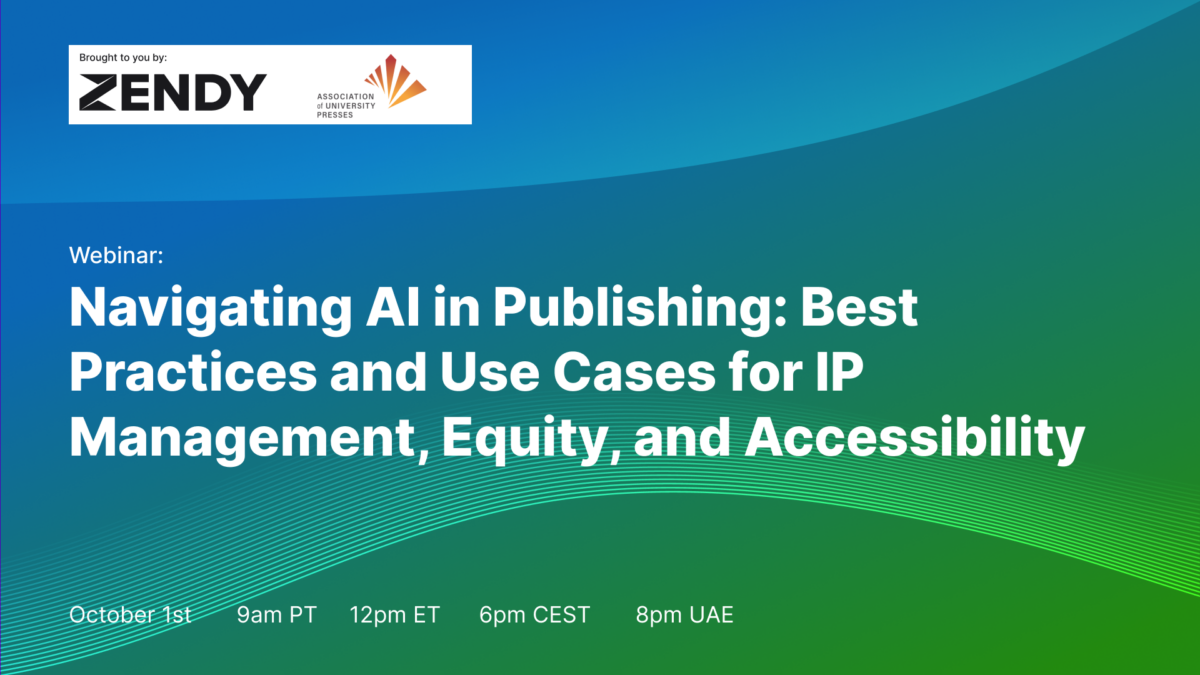Recently, we collaborated with AU Presses to host an insightful webinar titled “Navigating AI in Publishing, Best Practices and Use Cases for IP Management, Equity, and Accessibility“. The webinar attracted a diverse audience of researchers, students and academics who wants to learn how to protect and leverage IP, copyright, accessibility, equity and bias through the challenges and opportunities of AI.
Key Highlights and Takeaways
- Engaging in closed AI systems: enabling consent, credit and compensation
In this webinar, our Co-founder, Kamran Kardan, addressed critical questions that researchers are asking regarding the ethical considerations of selecting AI tools. With the growing integration of AI in research, Kamran highlighted the need for transparency into how researchers’ content might be processed or utilised by AI systems.
- Publisher AI use case: IT governance Publisher.
Andreas Chrysostomou, Publishing Relations Manager at IT Governance Publishing Ltd, shared valuable key points about the future of IP for scientific papers within AI. He also highlighted the importance of collaboration between researchers and AI developers to create a more transparent and efficient ecosystem that benefits all.
- AI tools: Enhancing Accessibility and Promoting Equity
Zendy’s Chief Technology Officer, Rodrigo Pinto, showcased the potential of AI in making access to knowledge more democratic and inclusive. In this webinar, Rodrigo addressed some of the crucial challenges that come with AI implementation, particularly around ethical and legal aspects, such as copyright protections, regulatory frameworks and bias in AI algorithms.
- GAI: Reducing Barriers to Scholarly Information Access
Lucy Lu Wang, Assistant Professor at the University of Washington Information School, shared how generative AI can simplify and make it easier for non-researchers and practitioners, such as healthcare clinicians, to access scholarly information. Lucy Lu pointed out key challenges, such as knowledge gaps, technical issues and discipline-specific language, and offered practical solutions for bridging these gaps.
The webinar was a great opportunity to engage with experts and discuss the future of open access. We thank AU Presses for the collaboration and all attendees for their valuable contributions.
Stay tuned for more discussions and insights from experts in the field.
